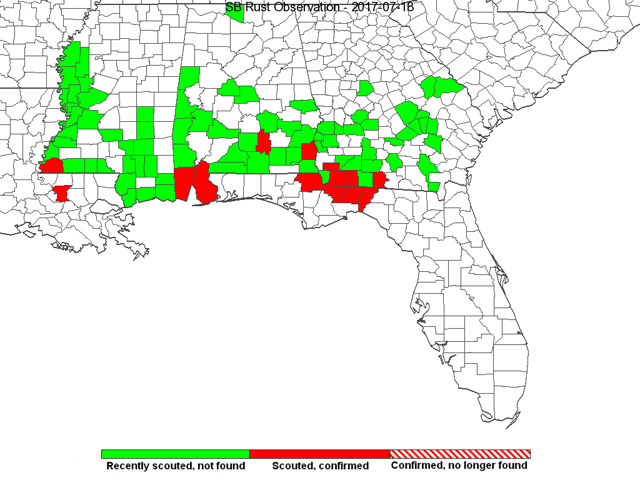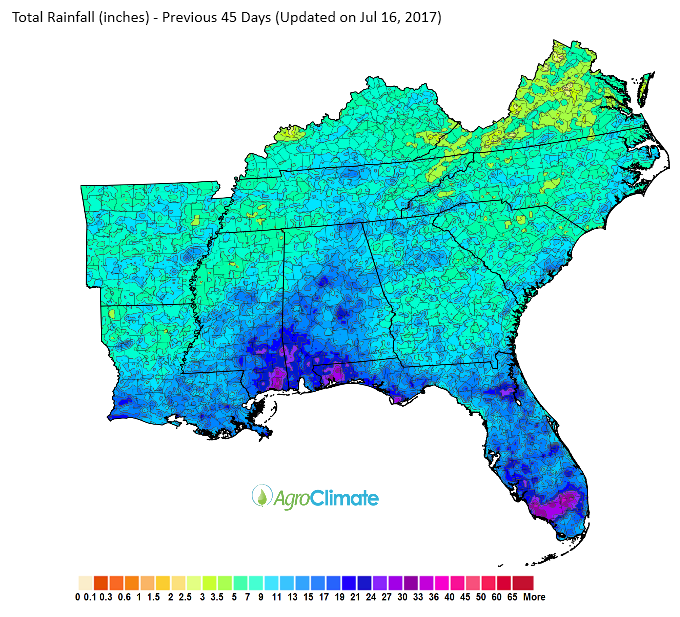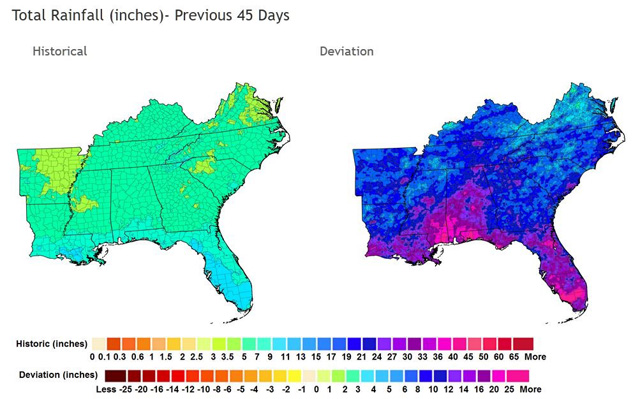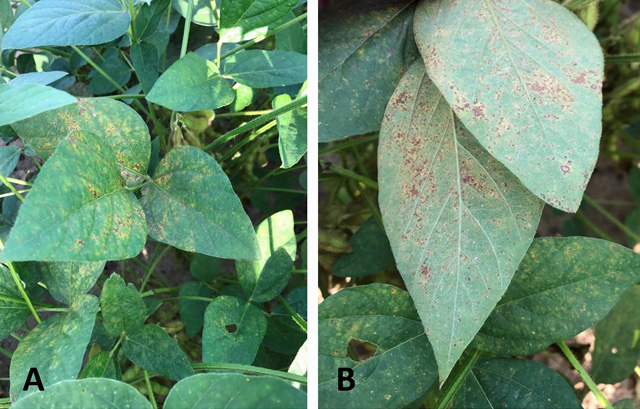
Figure 1. Soybean rust was detected on soybean in a soybean sentinel plot in Jackson County, Florida on June 26, 2017. The map above shows scouted and confirmed locations through July 18, 2017 as reported on the USDA IPM PIPE website.
Ian Small, Kelly O’Brien, and David Wright, UF/IFAS NFREC Quincy, and Ethan Carter , UF/IFAS Regional Crop IPM Agent
Soybean rust was confirmed in early-planted soybean sentinel plots on June 26, 2017 at the UF/IFAS Extension Office in Marianna Florida. Ethan Carter, Regional Crop IPM Agent cooperating with Ian Small, and Kelly O’Brien on the monitoring of the sentinel plot, submitted the leaf samples that were analyzed and found to be positive for soybean rust. Sentinel plots are planted very early, so they are more mature with a more developed canopy than most soybean production fields to serve as an early-warning system for farmers.
With the unseasonably wet start to summer, conditions have been suitable for soybean rust to produce spores for dispersal.

Figure 3. Map showing rainfall for the previous 45 days (June 1 – July 15) http://agroclimate.org/. Frequent rainfall has resulted in favorable conditions for soybean rust and many other plant diseases.

Figure 4. Map showing deviation from historical rainfall averages for the southeast US for the past 45 days (June 1 – July 15) http://agroclimate.org/. Many parts of Alabama, Florida, and Georgia have experienced greater than 14 inches above historical average rainfall.
It will be important for growers to scout for disease and stay on top of their fungicide application programs this year. Follow updates from USDA Pest Information Platform for Extension and Education (ipmPIPE) to monitor soybean rust distribution in your area. Several fungicides are available that provide very good control of soybean rust: UT Fungicide Efficacy for Control of Foliar Soybean Diseases. Be sure to rotate fungicides from different classes to prevent resistance. Before selecting your fungicide for control, consider other diseases such as Cercospora leaf blight that may also be an issue in your fields.
Each year the rust epidemic typically begins in the Gulf Coast area and spreads north. Monitoring of sentinel plots in Florida plays an important role in providing information to soybean producing states. This sentinel plot monitoring effort was made possible through funding from the Eastern Region Soybean Board (ERSB).
Resources:
UT Fungicide Efficacy for Control of Foliar Soybean Diseases
USDA site for tracking soybean rust
A farmer’s guide to soybean diseases
Using foliar fungicides to manage soybean rust (updated)
- Managing Peanut Health and Diseases in the Winter - January 31, 2025
- Bridging the Gap: Empowering Youth with Ag-Tech Skills - July 16, 2024
- Time to Protect your Cotton from Premature Defoliation due to Foliar Diseases - July 30, 2021

